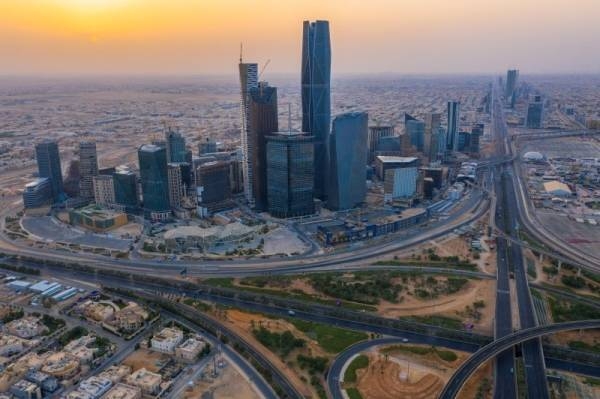Saudi Arabia’s non-oil exports, including re-exports, saw a significant increase of 12.4 percent in April 2024, reaching SR101.7 billion compared to the same month in 2023. The General Authority for Statistics (GASTAT) released the latest figures showing a rise in non-oil exports excluding re-exports, but at a lower rate of 1.6 percent. The value of re-exported goods also experienced a notable jump of 56.4 percent in April 2024 compared to the previous year. This increase led to a rise in the ratio of non-oil exports to imports, reaching 37.1 percent in April 2024, up from 32.6 percent in April 2023, with non-oil exports increasing by 12.4 percent and imports decreasing by 1.3 percent during this period.
The GASTAT’s international trade report highlighted a one percent decrease in merchandise exports in April, mainly due to a decline in petroleum exports by 4.2 percent. The percentage of petroleum exports out of total exports also dropped from 80.6 percent in April 2023 to 78 percent in April 2024. On the other hand, imports decreased by 1.3 percent in April 2024, amounting to SR60.3 billion, resulting in a 0.5 percent decrease in the trade balance surplus compared to April 2023, which stood at SR41.1 billion. Comparing the data to March 2024, the value of merchandise exports dropped by 1.7 percent, while non-oil exports including re-exports decreased by 6.3 percent. However, imports decreased by 17.4 percent in April, leading to a 36 percent increase in the merchandise trade balance compared to March 2024.
The increase in non-oil exports for Saudi Arabia is a positive sign for the country’s economy, showcasing its growing capabilities in diversifying its exports beyond oil. The rise in non-oil exports, including re-exports, reflects the country’s efforts to expand its global trade relations and reduce its dependence on oil revenues. By focusing on non-oil exports, Saudi Arabia can mitigate the risks associated with fluctuations in oil prices and contribute to the overall economic stability of the country. The significant jump in the value of re-exported goods also highlights the country’s strategic location as a key player in the global supply chain, facilitating the flow of goods to and from various regions.
The decline in petroleum exports in April 2024 may be attributed to various factors such as fluctuations in global oil prices, changes in demand, and geopolitical challenges. Despite the decrease in petroleum exports, the overall increase in non-oil exports and the positive trade balance surplus indicate resilience in Saudi Arabia’s economy. The country’s ability to adapt to changing market conditions and diversify its export base demonstrates a proactive approach towards building a sustainable economy. By diversifying its exports, Saudi Arabia can tap into new markets, strengthen its trade relationships, and create new opportunities for economic growth and development.
As Saudi Arabia continues to focus on expanding its non-oil exports, there is a need for further investment in sectors outside of the oil industry. Developing industries such as manufacturing, agriculture, and technology can help the country reduce its reliance on oil exports and create a more balanced economy. Encouraging innovation, entrepreneurship, and trade partnerships will be essential in sustaining the growth of non-oil exports and driving economic diversification. By leveraging its strategic location, resources, and skilled workforce, Saudi Arabia can position itself as a leading exporter in the region and enhance its competitiveness in the global market. The recent increase in non-oil exports signals a positive trend towards achieving economic stability and long-term growth for the country.
In conclusion, Saudi Arabia’s non-oil exports, including re-exports, have shown a significant increase in April 2024, highlighting the country’s efforts to diversify its export base and reduce its dependence on oil revenues. The rise in non-oil exports, coupled with a decrease in imports and a positive trade balance surplus, reflects a resilient economy that is adapting to changing market conditions. By focusing on expanding non-oil sectors and investing in key industries, Saudi Arabia can strengthen its position as a global exporter and drive sustainable economic growth. The country’s strategic location, resources, and skilled workforce provide a solid foundation for further expanding its non-oil exports and enhancing its competitiveness in the international market.











